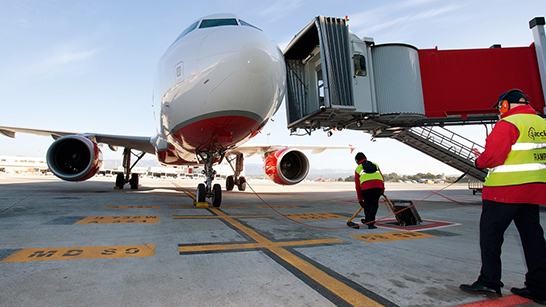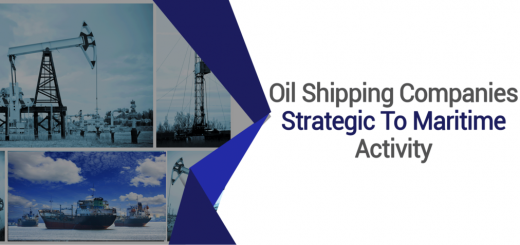Common Problems Associated with the Logistics of Crew Handling

Effective crew handling is an art that requires high-level expertise and handiness. It involves the management and coordination of diplomats, expatriates, and individuals of diverse nationalities on arrival and moving them to locations of interest or primary assignment or departure to the country of residence. It sounds straightforward and interesting – doesn’t it? However, there are several problems that could occur, and they include:
Effective Crew Handling Strategies
Service Level Agreement: While it is true that SLAs formally document the expectations and requirements of service(s) to be provided in relation to crew handling, it can also become a problem – especially when the scope of responsibility and obligations are not clearly defined or is silent about what consequences should be associated with certain violations of the provisions of the SLA.
The solution here would be to clearly define the scope of responsibility and obligations in the SLA between both parties, clearly stating the terms and method of payment, the consequences of non-compliance and the conditions for termination of the contract.
Uneven Demand to Supply Ratio: It is mostly difficult to find an equilibrium of demand and supply for skilled offshore crew members working on special projects. When the demand is a lot higher than the supply of the required expertise, the burden on a highly skilled few will be equally high and would attract a higher cost.
A lasting solution is to find a good combination of people with great potential for specific project expertise and those with the requisite expertise. Provide specialized training for crew members to address major and minor skill gaps among them or outsource to an expatriate party.
Crew Exchange Delays: Crew exchange delays can put an extra workload on crew members who ought to be relieved within a specified period. For instance, in an offshore practice where workers have been wired to be offshore for three weeks, get relieved and go onshore for another three weeks, crew exchange delay can be very frustrating and could lead to fatigue, high diminishing returns and could prompt diverse health challenges for crew members.
To get this right, attention must be given to planning, timing and efficient scheduling to avoid costly delays in crew exchange or relocation.
Visa Restrictions: These are entry restrictions imposed by the host country on crew members during transit. The crew visas are associated with the request for permission to enter a country for a short duration and perform the predefined duties in the designated location. Validity of transit visas for crew members is usually limited to several hours, days and months depending on the prevailing circumstances and that is why failure to secure it will mar the chances of crew members completing their mission in the host country.
All entry visa requirements for the host country must be ascertained by the prospective crew adequately informed and prepared to secure visas that best suit their travel objectives.
Crew Member’s Behaviour: Have you ever had to deal with straying crew members? Or the ones disposed to some unacceptable behaviours like heavy drinking, and flirting around town like there’s nothing at stake? Those can be some very difficult groups to handle. These wanton behaviours largely account for the loss of crew members, flight misses, delays, cancellations and unnecessary delays in crew exchange and clearance. These will have some serious cost implications.
To guard against these unpleasant behaviours, efforts must be made to engage crew members in a pre-arrival orientation and pep talks. Psychological evaluation counselling on arrival are key steps to eliminating potential delinquencies among crew members.
Insecurity: Crew managers must be at their best in making all the security arrangements to protect their crew from arrival to in-country transportation or offshore. The absence of a fortified security escort can lead to loss of luggage, and expose the crew to the danger of robbery and kidnapping – especially for offshore crews.
Inability to Secure Shore Passes: Inability to secure shore passes is quite costly, especially when the crew is already within the host country but cannot secure a pass to designated project sites. Shore passes are usually issued to project crew members and not tourists. Before departure to project sites like a Free-Zone or an offshore base, for instance, the crew manager ought to have sent a list containing the particulars of crew members so that passes can be issued to them before they can make an entry into the Free-Zone or offshore base for instance.
The solution is to send a list of crew members to authorities of the location(s) where shore passes are required well ahead of time with all the required information so that passes can be issued to concerned crew members.
Natural Disaster: Varying categories of hurricanes, tornadoes, heavy rain storms, and earth-quake can hamper crew movement leading to flight delays, cancellations, re-scheduling and costly delays in crew exchanges and relocations. Under this circumstance, no matter how detailed the crew manager is, some of these natural occurrences will impede crew movement to the extent that Hurricane Harvey obstructed the movement of crew members to key project locations across Africa. You can imagine what that means.
Finally, this not only aimed at presenting the problems for people to resign to fate. What we’ve tried to stress here is since these challenges are real and likely to occur when managing crews, it is wise to engage a company like Fortune Global that has built a pedigree of excellence in all levels of crew handling. The benefit of engaging an expert like Fortune Global far outweighs the cost of hiring a company with little or no ability to handle, anticipate and decisively control the problems and intricacies associated with crew management.



